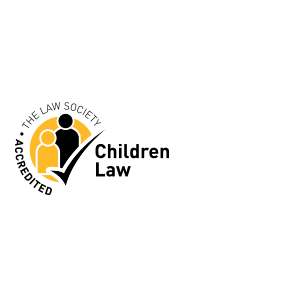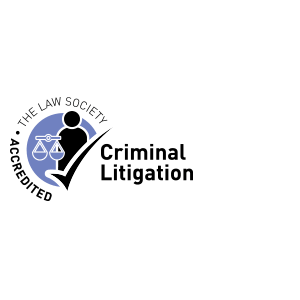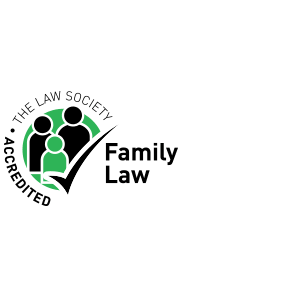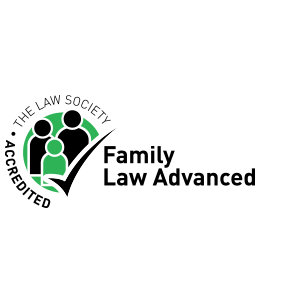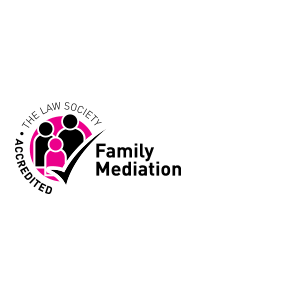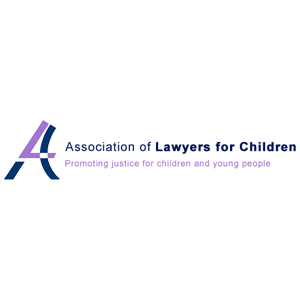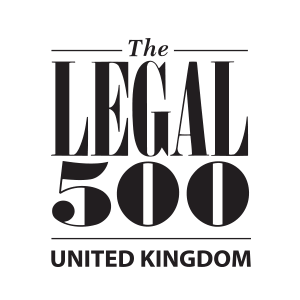- Hounslow 020 8814 7599
- Slough 01753 303 631
- Twickenham 020 8814 9989
Teachers Professional Misconduct Hearing before the National College for Teaching & Leadership (NCTL)
At Lovell Chohan Solicitors we have specialist solicitors who are able to represent and defend you in hearings before the National College for Teaching and Leadership conduct Panel. We are here to help advice and represent you when necessary. Please speak to Lovell Chohan, the senior partner at this practice who deals with all areas of Teachers Misconduct.
The NCTL is responsible for regulating teachers in schools, academies, independent schools, sixth form colleges, youth custody settings and children’s homes. Referrals to the NCTL are usually made by the Disclosure and Barring Service (DBS), the police, parents or other regulatory bodies.
The NCTL usually only investigate serious allegations of professional misconduct by teachers.
We are able advise you, as a teacher, in relation to allegations of:
- Gross Misconduct
- Poor Performance
- Damage/Improper Use of School Facilities
- Violent/Abusive Behaviour
- Fraud/Dishonesty
- Sharing Confidential Information
- Convictions
- Cautions issued by the Police
We will take your detailed instructions and advise you all aspects of the following:
- the initial investigation by the school/police
- the referral to the NCTL
- advise you in the preparation of a defence strategy
- response to any notice of proceedings that are issued
- deal with any interim Prohibition Orders made
- represent you at any hearings
- prepare statements/written responses/evidence
- advise you on any subsequent merits for an appeal
- make applications for anonymity
- deal with any subsequent appeals to the High Court
Teachers are the single most important factor in a child’s education and the overwhelming majority are highly competent and effective, and never engage in any form of misconduct. Head teachers and governing bodies are responsible for managing teachers in relation to their competence and conduct and for taking action to address underperformance and misconduct in their schools.
The Education Act 2011 gives responsibility to the Secretary of State to regulate teachers’ conduct and to hold a list of teachers who have been prohibited from teaching. The NCTL operates the regulatory system on his behalf and references to the NCTL in this advice should be read accordingly. The Teachers’ Disciplinary (England) Regulations 2012 (“the Regulations”) provide specific and detailed information about how the system should operate.
The key features of the regulatory system are that:
- The arrangements apply to anyone undertaking teaching work, as defined in the Regulations, in schools, including academies (including 16- 19 academies and free schools), local authority maintained schools, non-maintained special schools and independent schools as well as sixth form colleges, relevant youth accommodation and children’s homes.
- The NCTL should only be involved in the most serious cases of misconduct, in order to make a decision about whether a teacher should be prohibited from teaching work. Other matters, including all cases of incompetence, should be dealt with locally.
- Where a teacher has been dismissed for serious misconduct or would have been dismissed had they not resigned, their employer (including an agency) must consider whether to refer the case to the NCTL. The employer should use the advice in this document to help make a judgement as to whether, on the grounds that a prohibition order may be appropriate, it is necessary to refer. Where the employer is in any doubt, a referral should be made. All referrals should be made promptly. Once a referral is received, a decision will be taken about whether it is appropriate to issue an interim prohibition order, pending further investigation.
- The police, the Disclosure and Barring Service (“DBS”), other regulators, members of the public and other interested organisations may also refer cases.
- The Secretary of State has the power to impose an interim prohibition order if he considers that it is necessary in the public interest to do so. This will apply in cases where there has been a particularly serious allegation and a judgement is made that the teacher should not teach while an investigation is undertaken.
Role of the Disclosure and Barring Service (“DBS”)
The DBS is responsible for deciding whether an individual should be barred from working with children and vulnerable adults and for maintaining a list of those individuals who are determined to be unsuitable (the barred list). The DBS is also responsible for processing requests for Criminal Records Checks, including those made as part of the checks carried out by schools prior to appointing staff.
The DBS will consider cases that concern safeguarding matters (i.e. harm or the risk of harm to a child), barring individuals from working with children where appropriate. When considering whether to bar a teacher, the criteria used by the DBS differ from those used by the NCTL. Where the DBS has decided a case does not meet its criteria for barring, the NCTL can still decide to refer the case to a professional conduct panel for its consideration.
What is a prohibition order?
A prohibition order means that the person concerned is not allowed to undertake unsupervised teaching work in schools or the other settings set out above. Where an individual is prohibited, their details will appear on the Prohibited List4.
4 The Prohibited List is administered by the NCTL and can be accessed by current and prospective employers of school staff via the Employer Access Online System. This service also provides information about any teacher qualification held and whether induction has been passed. The service is offered free of charge to schools, local authorities and teacher supply agencies in England.
A prohibition order is likely to be appropriate when the behaviour of the person concerned has been fundamentally incompatible with being a teacher. The primary purpose of a prohibition order is to protect pupils, maintain public confidence in the teaching profession and uphold proper standards of conduct, referred to as public interest. Section 5 (iii) ‘Is a prohibition order appropriate?’ provides more detail about how public interest is considered.
A prohibition order is a lifetime ban, though in some circumstances the teacher may be able to make a request to have it reviewed after a specified period of time. See ‘Decisions on prohibition’ at section 8 below.
Professional conduct panel decision-making criteria
After considering all of the evidence put before it, a professional conduct panel must make three decisions, in the order shown below. If a panel decides that ‘no’ is the answer to any of these questions, it will not need to proceed to the next question. A panel may answer ‘yes’ to (i) and (ii) and still decide that it is not appropriate to recommend a prohibition order.
principles, but will ensure that each case is judged on its own individual merits. The adviser’s role is to assist a panel but he or she does not play a part in its decision-making process.
Is the panel satisfied that the facts of the case have been proved?
A panel must decide whether the facts of the case have been proved on the balance of probabilities. This is the same as the standard of proof in civil law cases. This means that a panel will decide that an event occurred if, on an assessment of the evidence available to it, it believes that the occurrence was more likely than not. A different standard is applied in criminal law cases, where the facts must be proved ‘beyond all reasonable doubt’.
Criminal convictions: If there has been a conviction, at any time, of a criminal offence, the hearing will not re-examine the facts of the case and the panel will accept the conviction as conclusive proof that establishes relevant facts.
Police cautions: Where there is evidence that the person concerned has received a caution, this establishes that they have made a clear admission of guilt in respect of committing the offence, or offences, for which the caution has been given. Whilst a panel cannot deem evidence of a caution to be conclusive of relevant facts in the same way as a conviction, it will carry significant weight in their considerations. The circumstances in which the police are able to issue cautions are set out in the “Ministry of Justice guidance: Simple Cautions for Adult Offenders”.
Cautions include reprimands, final warnings and formal warnings.
Evidence presented to a panel may also include: details of a variety of sanctions issued by the police other than cautions; information relating to disciplinary hearings or tribunals; or considerations by other regulators. A panel will assess all available evidence from such investigatory processes, which may include an admission of guilt and, informed by the legal advice provided to it, will give an appropriate weight to that evidence. In particular, it is envisaged that evidence of an individual’s admission of guilt to the police will carry significant weight.
Has there been: a) “unacceptable professional conduct”; b) “conduct that may bring the profession into disrepute”; or c) “conviction, at any time of a relevant offence”?
If a panel is satisfied about the facts of the case, it must determine whether this means that one of the three categories above applies.
a) “Unacceptable professional conduct” is misconduct of a serious nature, falling significantly short of the standard of behaviour expected of a teacher. Misconduct outside of the education setting will only amount to “unacceptable professional conduct” if it affects the way the person fulfils their teaching role or if it may lead to pupils being exposed to or influenced by the behaviour in a harmful way.
In making a judgement as to whether the behaviour demonstrated falls short of the standard expected of a teacher, a panel should draw on its own knowledge and experience of the teaching profession and the personal and professional conduct elements of the standards published by the Secretary of State (“the Teachers’ Standards”).
A panel is likely to conclude that an individual’s conduct would amount to “unacceptable professional conduct “where they are found to have displayed behaviours associated with any of the offences shown in the list that begins on page 8, but were not convicted of the offence. There will also be other behaviours that panels will determine as amounting to “unacceptable professional conduct”. It is likely that a panel would consider the acceptance of a caution for any of the offences in the list that begins on page 8 to confirm behaviours that would amount to “unacceptable professional conduct”.
“Conduct that may bring the profession into disrepute” should be judged by a panel in a similar way. Misconduct outside of the education setting may be considered to be relevant if it is serious and the conduct displayed would likely have a negative impact on the individual’s status as a teacher, potentially damaging the public’s perception of them, therefore bringing the profession into disrepute. Panel members should use their knowledge and experience to take into account how the teaching profession is viewed by others, and the influence that teachers may have on pupils, parents and others in the community. Panels should take account of the uniquely influential role that teachers can hold in pupils’ lives and that pupils must be able to view teachers as role models in the way they behave.
Panels will be likely to conclude that an individual’s conduct will amount to “conduct that may bring the profession into disrepute” where they are found to have displayed behaviours associated with any of the offences shown in the list that begins on page 8, but were not convicted of the offence. There will also be other misconduct that panels will determine as amounting to “conduct that may bring the profession into disrepute”. It is likely that a panel would consider the acceptance of a caution for any of the offences below to confirm behaviours that would amount to “conduct that may bring the profession into disrepute”. “Conviction, at any time, of a relevant offence” refers to a conviction of an offence that is relevant to a person’s fitness to be a teacher, either by a British criminal court or by an overseas court where the offence would have constituted a relevant offence had it been committed in England and Wales. Where there has been a conviction, the panel is concerned to establish its relevance to the teacher’s on-going suitability to teach. An offence can be considered relevant even if it did not involve misconduct in the course of teaching. In making a judgement on relevance a panel will consider all the facts of the case. These will include the nature and gravity of the offence, its circumstances and any mitigating circumstances and, in committing the offence, whether and to what extent the individual’s actions:
- were contrary to the standards of personal and professional conduct expected of a teacher, with reference to the Teachers’ Standards;
- were relevant to teaching, working with children and/or working in an education setting;
- would be likely to have an impact on the safety or security of pupils or members of the public; or
- would be likely to affect public confidence in the teaching profession if the teacher were allowed to continue teaching.
It is likely that all offences that led to a term of imprisonment or that relate to, or involve, any of the following will be considered to be “a relevant offence”:
- violence;
- terrorism;
- intolerance and/or hatred on the grounds of race/religion or sexual orientation
- fraud or serious dishonesty;
- theft from a person or other serious theft;
- possession of class A drugs;
- supplying of illegal substances of any classification;
- sexual activity;
- arson and other major criminal damage;
- serious driving offences, particularly those involving alcohol or drugs;
- serious offences involving alcohol;
- serious offences involving gambling;
- possession of prohibited firearms, knives or other weapons;
- any activity involving viewing, taking, making, possessing, distributing or publishing any indecent photograph or image or pseudo photograph or image of a child6, or permitting any such activity, including one off incidents.
A panel may consider that a teacher’s behaviour will be considered to be incompatible with being a teacher if there is evidence that they have viewed, taken, made, possessed, distributed, or published any photograph or image, or permitted such activity, at a level that would not be considered indecent for the purposes of the current criminal sentencing guidelines. This position applies equally to all other references to child images made elsewhere in this document.
It is less likely that any of the following offences will be considered to be “a relevant offence”:
- minor driving offences;
- minor offences involving personal use of alcohol or class B or C drugs away from children and education contexts;
- minor offences involving gambling; or
- isolated minor cases of theft.
These lists provide only an indication of the types of offences that are likely and less likely to be considered “relevant”. Each case needs to be considered on its individual merits by the panel, taking into account the circumstances involved.
Is a prohibition order appropriate?
If a panel has found that there has been “unacceptable professional conduct”, “conduct that may bring the profession into disrepute” or a “conviction, at any time, of a relevant offence”, it must make a judgement about whether to recommend the imposition of a prohibition order by the Secretary of State.
A prohibition order aims to protect pupils and to maintain public confidence in the profession. A panel should consider what is in the public interest and whether a prohibition order is an appropriate and proportionate measure. Prohibition orders should not be given simply in order to be punitive or show that blame has been apportioned, although they are likely to have a punitive effect.
Public interest considerations would usually include:
- the protection of pupils and other members of the public
- the maintenance of public confidence in the profession
- declaring and upholding proper standards of conduct.
In deciding whether or not the recommendation of a prohibition order is appropriate, professional conduct panels should apply the principle of proportionality, weighing the public interest considerations (as above) against those of the teacher. This will include consideration of any mitigation in relation to the seriousness of the behaviour in question.
In considering the seriousness of the behaviour, it is important to consider the influential role that a teacher can play in the formation of pupils’ views and behaviours. For example, a teacher’s behaviour that is judged to promote extremist political or religious views or actions should be viewed very seriously in terms of its potential influence on children and young people and as a possible threat to the public interest, even if no criminal offence is involved.
It is likely that a teacher’s behaviour will be considered to be incompatible with being a teacher if there is evidence of one or more of the factors below. This list is not exhaustive and the decision should be made by a panel on a case by case basis, after seeking relevant advice from the panel’s legal adviser:
- serious departure from the personal and professional conduct elements of the Teachers’ Standards;
- misconduct seriously affecting the education and/or well-being of pupils, and particularly where there is a continuing risk;
- actions or behaviours that undermine fundamental British values of democracy, the rule of law, individual liberty, and mutual respect and tolerance of those with different faiths and beliefs ; or that promote political or religious extremism. This would encompass deliberately allowing the exposure of pupils to such actions or behaviours, including through contact with any individual(s) who are widely known to express views that support such activity, for example by inviting any such individuals to speak in schools;
- a deep-seated attitude that leads to harmful behaviour;
- abuse of position or trust (particularly involving vulnerable pupils) or violation of the rights of pupils;
- dishonesty especially where there have been serious consequences, and/or it has been repeated and/or covered up;
- sustained or serious bullying, or other deliberate behaviour that undermines pupils, the profession, the school or colleagues;
- possession of prohibited firearms, knives or other weapons;
- sexual misconduct e.g. involving actions that were sexually motivated or of a sexual nature and/or that use or exploit the trust, knowledge or influence derived from the individual’s professional position;
- any activity involving viewing, taking, making, possessing, distributing or publishing any indecent photograph or image or pseudo photograph or image of a child, or permitting such activity, including one off incidents;
- the commission of a serious criminal offence, including those that resulted in a conviction or caution, paying particular attention to offences that are ‘relevant matters’ for the purposes of The Police Act 1997 and criminal record disclosures; 7
- failure to refer to the police known female genital mutilation (FGM) cases involving girls under 18 where the individual is aware, or should have been aware, of the statutory duty to report such matters but deliberately chose not to do so.
Mitigation
Even where it is clear to a panel that there is proven evidence of one or more of the factors set out above, when considering the appropriateness of recommending prohibition, a panel should take into account any mitigation presented.
If most or all of the following criteria are apparent (this list is not exhaustive) and taking account of the nature and severity of the behaviour, a panel may determine that a recommendation for a prohibition order will not be appropriate:
- The teacher’s actions were not deliberate;
- The teacher was acting under duress;
- The teacher has a previously good history.
Each case must be judged on its own merits. Meeting the above criteria will not necessarily result in a panel making a recommendation not to prohibit.
Panel recommendations
Following its consideration of all the evidence presented, a panel will make a recommendation to the Secretary of State as to whether a prohibition order should be made in respect of the teacher. In doing so, a panel will summarise the evidence it has considered and the rationale applied in reaching its recommendation. Where a panel recommends a prohibition order is appropriate, it will also recommend whether the Secretary of State should consider allowing a prohibited teacher to make a future application to have the prohibition reviewed.
A panel should consider recommending to the Secretary of State that a prohibition order is imposed with no provision for the teacher to apply for it to be set aside after any period of time where the case involved or permitted any of the following:
- violence;
- terrorism;
- intolerance and/or hatred on the grounds of race/religion or sexual orientation
- fraud or serious dishonesty;
- theft from a person or other serious cases of theft;
- class A drug abuse or supply;
- serious sexual misconduct e.g. where the act was sexually motivated and resulted in, or had the potential to result in, harm to a person or persons, particularly where the individual has used their professional position to influence or exploit a person or persons;
- arson and other major criminal damage;
- any activity involving viewing, taking, making, possessing, distributing or publishing any indecent photograph or image or pseudo photograph or image of a child.
This list is not exhaustive.
Decisions on prohibition
Once a senior official from the NCTL has received a recommendation on prohibition from a panel they will, within two working days wherever possible, make a decision on whether to impose a prohibition order. The decision will take account of the panel’s recommendations and will be notified to the teacher concerned in writing before it is made public.
A prohibition order applies for life.
However, it may be decided that a teacher should be allowed to apply to have the prohibition order reviewed after a specified period of time. The minimum period will not be less than two years and the teacher may then apply to have the prohibition order reviewed with a view to having it set aside.
Where an application for review is made, the NCTL may require documents or other material evidence to be submitted in order for the application to be considered. Where a senior official at the NCTL is satisfied that the evidence supports the application, they may decide the prohibition order should be set aside. Alternatively, they may decide it is necessary to convene a professional conduct panel to further consider the application and make a recommendation about whether to set aside the prohibition order. The panel will consider any relevant evidence from, or on behalf of, the teacher. 13
A review is not an appeal against the original decision to impose a prohibition order and panels will not, therefore, reconsider evidence given at the original hearing or new evidence related to the original misconduct that was not considered at the original hearing. The review will only consider the reasons given by the teacher as to why they should now be considered suitable to teach again. In line with the principles for prohibition set out above, the panel and senior official should consider whether the continuation of the prohibition order is in the public interest and a proportionate measure. Whether and to what extent a teacher demonstrates clear and unequivocal insight into the misconduct that led to their prohibition and the extent to which they can demonstrate a clear commitment to adhere to and exhibit the personal and professional conduct elements of the Teachers’ Standards should be an important part of the consideration of the application.
In reviewing an application to have a prohibition order set aside, a professional conduct panel can recommend that either:
- the prohibition order should be removed and the teacher given the opportunity to resume teaching; or
- the prohibition order should remain in place and, if so, whether a further specified minimum period should be applied before another application for a review can be considered. This will not be less than one year.
Appeals
A teacher may appeal against a prohibition order to the Queen’s Bench Division of the High Court under Part 52 of the Civil Procedure Rules within 28 days of the date a notice of the Order was served on them.
If the High Court allows an appeal, it is likely to remit the case to the Secretary of State for reconsideration.
Interim prohibition orders
An interim prohibition order prevents a person from teaching until their case has been fully considered and concluded. It may be made only if the Secretary of State considers that it is necessary in the public interest. In respect of considering interim prohibition orders, references to public interest considerations would likely be to the need to protect children and/or other members of the public. Professional conduct panels have no role in considering whether an interim prohibition order should be made. In all cases, where the NCTL receives an allegation of teacher misconduct, a senior official will consider whether it is appropriate to make an interim prohibition order.
Decisions about whether to make an interim prohibition order will be taken on a case by case basis, taking account of the nature and severity of the allegation and the available evidence, including any information as to the likelihood of further incidents. The seriousness of the risk to pupils and the public should the individual be allowed to continue to teach unsupervised should be balanced against the interests of the teacher, having regard to the need for proportionality and the adverse consequences for the practice and reputation of the teacher if an order is imposed.
Crown Prosecution Service (CPS) and/or police action should be taken into account. If a teacher has been charged with an offence an assumption may be made that there is reliable evidence that it has been committed. If a teacher has been bailed without charge it may be assumed that there is a reasonable suspicion that they have been involved in the commission of an offence, although the evidential threshold is lower than that required by the CPS for criminal charges to be brought.
Although not an exhaustive list, when balanced with the other necessary considerations, the following is likely to indicate that the imposition of an IPO is necessary in the public interest:
- information that the teacher is under investigation by the police, or has been charged, in connection with a serious offence, particularly of a sexual nature and/or involving children;
- predatory or sexually inappropriate conduct toward pupils;
- actions or behaviours that undermine the fundamental British values of democracy, the rule of law, individual liberty, and mutual respect and tolerance of those with different faiths and beliefs; or that promote political or religious extremism. This would encompass deliberately allowing the exposure of pupils to such actions or behaviours, including through contact with any individual(s) who are widely known to express views that support such activity, for example by inviting any such individuals to speak in schools; or
- any activity involving indecent images of children, as defined on page above.
An interim prohibition order may be imposed at any time during the investigation, for example as additional evidence becomes available. The teacher will be informed that consideration is being given to the imposition of an interim prohibition order and they will be given seven days’ notice to provide any additional evidence that they want to be considered. All the available evidence will be fully considered.
Where the Secretary of State imposes an interim prohibition order, the teacher will be informed in writing that the order is to apply immediately. If the teacher is currently employed in a teaching position, they may not continue in that role. The teacher’s employer will also be informed in writing and should ensure the person is prevented from continuing in their position until the case is concluded or until the person successfully applies to review the order. The Prohibited List will clearly indicate that the individual has an ‘interim’ prohibition order. An interim prohibition order will be reviewed by the Secretary of State, on written request from the teacher after a period of six months since it was imposed or last reviewed. The teacher should provide evidence to inform the review, which will be considered alongside evidence from the investigation. The individual does not have a right of appeal to the High Court against an interim prohibition order.
Get in touch with our employment law solicitors in London
For many years Lovell Chohan Solicitors have served the London boroughs of Slough, Windsor, Eton, Hounslow, Twickenham, Richmond & Chiswick. Visit your local solicitors at our offices in Hounslow, Slough & Twickenham.

